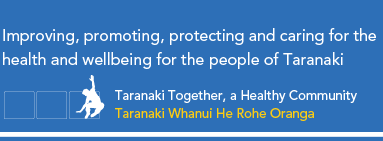Health Top Tips For A Safe Summer
23 December 2013
A Kiwi summer is all about sunshine, swimming, barbecues, and spending time with family and friends. With those things however, come some hazards.
Don’t let too much of a good thing spoil your summer holidays and take some healthy advice from Waikato District Health Board’s public health unit, Population Health on water safety, sun safety, food safety and preventing the spread of illness:
Water safety
Whether you’re planning on being in, on or under water this summer, we want you to be safe. With any outdoor pursuit, conditions can change fast.
The Water Safety Code includes four key safety messages:
- Be prepared
- Watch out for yourself and others
- Be aware of dangers
- Know your limits
The Boating Safety Code has five key boating safety messages:
- Lifejackets – take and wear lifejackets at all times when out on the water
- Skipper responsibility – the skipper is responsible for the safety of everyone on board and for safe operation of boats
- Communications – take two separate waterproof means of communication
- Marine weather – check the forecast before going out and be prepared for change
- Avoid alcohol – alcohol affects your judgement and awareness which is critical
Food safety
At this time of year, please remember to wash hands and ‘Clean Cook Chill’.
Foodborne illness is estimated to strike approximately 200,000 New Zealanders every year. At least 40 per cent are attributed to food handling, preparation or storage within the home.
Enjoy the holiday period rather than spend it on the toilet. Here are a few tips:
Clean
Follow the 20+20 hand washing rule:
- wash hands for 20 seconds with soap and water
- dry hands for 20 seconds with clean dry towel or paper towel
Always wash hands:
- before handling food
- after handling raw meat and poultry
- after going to the toilet or changing nappies
- after handling pets
- after gardening
Before you start handling food make sure all surfaces and equipment used for food are spotlessly clean. Wash knives and utensils and scrub chopping boards between preparation of raw and cooked foods.
Cook
- defrost frozen foods in the fridge before cooking, not on the bench
- reheat leftovers till steaming hot and not more than once
- precook chicken, meat patties and sausages before a BBQ
- make sure meat gets cooked thoroughly
- place cooked items on a clean plate not already used for raw meat
Chill
- keep food very hot or very cold
- use a chilli bin and chilly pads to keep foods cold
- defrost meat and poultry thoroughly before cooking
- cover and refrigerate or chill leftovers as soon as possible after cooking
- throw at perishable food that you have left at room temperature for more than two hours
Sun safety
Skin cancers are the most common form of cancers in New Zealand. Each year, skin cancer results in nearly 350 deaths in New Zealand, with about 250 of these from melanoma.
The vast majority of these cancers are preventable as over 90 per cent of all skin cancers are attributed to excessive sun exposure. Sunburn now could lead to skin cancer later in life.
Children, particularly those with a fairer skin complexion, represent an at risk group in developing skin cancers.
Children are more likely to spend extended times playing outdoors, particularly in summer months. Limiting UV exposure during the school day, particularly between the hours of 10am and 4pm during Daylight Savings months September and April, and during school years could reduce the incidence of skin cancers later in life.
How can i be sunsmart?
- Being SunSmart is about covering up – with clothing, broad-spectrum sunscreen, a hat, and sunglasses. Remember to SLIP, SLOP, SLAP and WRAP.
- SLIP into a long-sleeved shirt and into the shade. Generally, fabrics with a tighter weave and darker colours will give you greater protection from the sun. There are also certain fabrics on the market that have a SPF rating.
- SLOP on plenty of broad-spectrum SPF30+ sunscreen at least 15 minutes before going outdoors.
- SLAP on a hat with a wide-brim or a cap with flaps – more people get sunburned on their face and neck than any other part of the body.
- WRAP on a pair of wrap-around sunglasses – UV radiation is just as dangerous to eyesight as it is for the skin.
Hand hygiene
Hand hygiene, when done properly, is one of the best ways to avoid contracting and spreading many infections. Infectious diseases such as the common cold, influenza and several gastrointestinal disorders are commonly spread through hand-to-mouth contact.
Inadequate hand hygiene also contributes to food-related illnesses, such as Salmonella, E.Coli infection and Campylobacter.
For effective hand hygiene:
- Wash your hands thoroughly with soap and hot water
- Dry your hands with a clean, dry towel or paper towel
It's important to always wash your hands before handling food, but just as important to wash them after:
- Handling raw meat and poultry
- Going to the toilet
- Handling pets
- Gardening or playing outdoors
For more information please call
Sue Carrington
Media Adviser
Ph 021 367 789
Last updated: Monday, December 23, 2013


